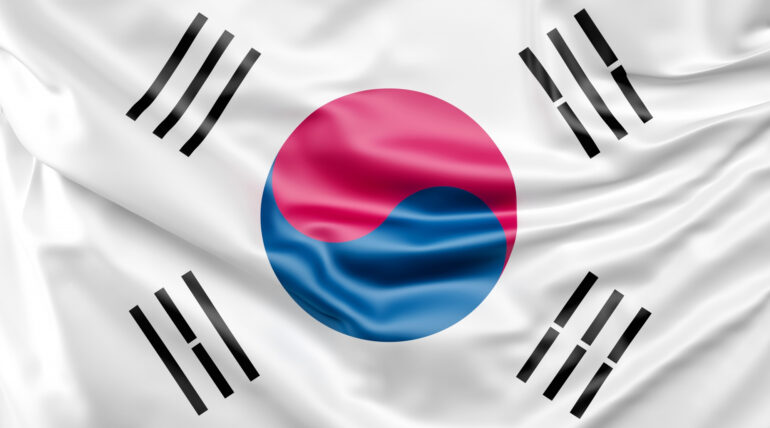
June 21, 2024
South Korea, known for its rapid technological advancements, rich cultural heritage, and stunning landscapes, is an increasingly popular destination for those looking to work, study, or explore. This guide provides detailed information on opportunities for working, studying, visiting, and immigrating to South Korea, including the visa application processes and famous places to visit.
Working in South Korea #WorkInKorea #KoreaJobs
South Korea offers numerous opportunities for foreign professionals, especially in sectors such as IT, education, engineering, and manufacturing. The country is known for its dynamic work culture and innovative industries.
Work Visa Categories
- E-2 Visa (Teaching English) #E2Visa
- For native English speakers with a job offer to teach English in South Korean schools.
- E-7 Visa (Specially Designated Activities) #E7Visa
- For professionals in specialized fields such as IT, engineering, and manufacturing.
- D-8 Visa (Corporate Investment) #D8Visa
- For foreign investors and entrepreneurs looking to start or manage a business in South Korea.
Application Process
- Job Offer: Secure a job offer from a South Korean employer.
- Prepare Documents: Gather necessary documents such as employment contract, educational qualifications, and proof of professional experience.
- Apply at Korean Consulate: Submit your visa application at the nearest South Korean consulate or embassy.
- Medical Examination: Undergo a medical examination if required for your specific visa type.
Studying in South Korea #StudyInKorea #KoreanEducation
South Korea is home to some of Asia’s most prestigious universities, offering a wide range of programs for international students. The country is known for its high educational standards and vibrant student life.
Top Universities
- Seoul National University #SeoulNationalUniversity
- Renowned for its comprehensive academic programs and research facilities.
- KAIST (Korea Advanced Institute of Science and Technology) #KAIST
- Known for its strong focus on science, technology, and engineering.
- Yonsei University #YonseiUniversity
- One of Korea’s oldest universities, offering diverse programs in humanities, social sciences, and natural sciences.
Benefits of Studying in South Korea
- Quality Education: Programs taught in English, with globally recognized degrees.
- Innovative Research: Strong emphasis on cutting-edge research and technology.
- Cultural Experience: Rich Korean culture and a high standard of living.
Application Process
- Choose a Program: Select a course and institution that aligns with your academic goals.
- Apply to the Institution: Submit your application directly to the chosen university.
- Receive Admission Letter: Obtain an offer of admission from the institution.
- Student Visa Application: Apply for a student visa (D-2 Visa) online or at a Korean consulate, providing proof of acceptance, financial means, and health insurance.
Visiting South Korea #VisitKorea #ExploreKorea
South Korea is a country of diverse landscapes, bustling cities, and rich history. It’s an ideal destination for travelers looking to explore East Asian culture.
Tourist Visa
- Short-Term Visit Visa (C-3 Visa): Allows for stays up to 90 days for tourism purposes.
- Visa Waiver: Citizens of certain countries can enter South Korea without a visa for short stays.
Application Process
- Apply Online or at Embassy: Submit your application online or at a South Korean embassy/consulate.
- Documentation: Provide proof of travel plans, financial means, accommodation, and travel insurance.
Immigrating to South Korea #ImmigrateToKorea #KoreaImmigration
South Korea offers various pathways for those seeking long-term residence or permanent residency.
Immigration Pathways
- F-2 Resident Visa #F2Visa
- For long-term residents who meet certain criteria such as income and employment.
- F-5 Permanent Resident Visa #F5Visa
- For those who have lived in South Korea for a significant period and meet other eligibility requirements.
- Marriage Migrant Visa (F-6 Visa) #F6Visa
- For foreign spouses of South Korean citizens.
Permanent Residency and Citizenship
- Permanent Residency: Apply after fulfilling residency requirements, demonstrating stable income and integration into Korean society.
- Citizenship: Permanent residents can apply for South Korean citizenship after meeting residency and integration criteria, including a language proficiency test.
Famous Places to Visit in South Korea
- Seoul #Seoul #DynamicSeoul
- The bustling capital, known for its mix of modern skyscrapers, historical palaces like Gyeongbokgung, and vibrant shopping districts.
- Busan #Busan #BeachCity
- A coastal city famous for its beaches, seafood, and cultural sites such as the Gamcheon Culture Village.
- Jeju Island #JejuIsland #NatureParadise
- A popular vacation destination known for its volcanic landscapes, beautiful beaches, and hiking trails on Hallasan Mountain.
- Gyeongju #Gyeongju #HistoricalCity
- Known as “the museum without walls,” it is home to numerous historical sites and relics from the Silla Dynasty.
- Incheon #Incheon #GatewayToKorea
- A major port city with attractions like Chinatown, Songdo Central Park, and the Incheon Landing Memorial Hall.
Conclusion
South Korea’s blend of technological innovation, high-quality education, and rich cultural heritage makes it an attractive destination for work, study, and travel. Whether you’re exploring the vibrant streets of Seoul, studying at a top-tier university, or starting a new life in this dynamic country, South Korea offers a wealth of opportunities and experiences.
Experience the best of South Korea and create unforgettable memories.
#SouthKoreaTravel #StudyInKorea #WorkInKorea #VisitKorea #ImmigrateToKorea #ExploreKorea #KoreaVisa #TravelDestinations #KoreanCulture #DynamicKorea











